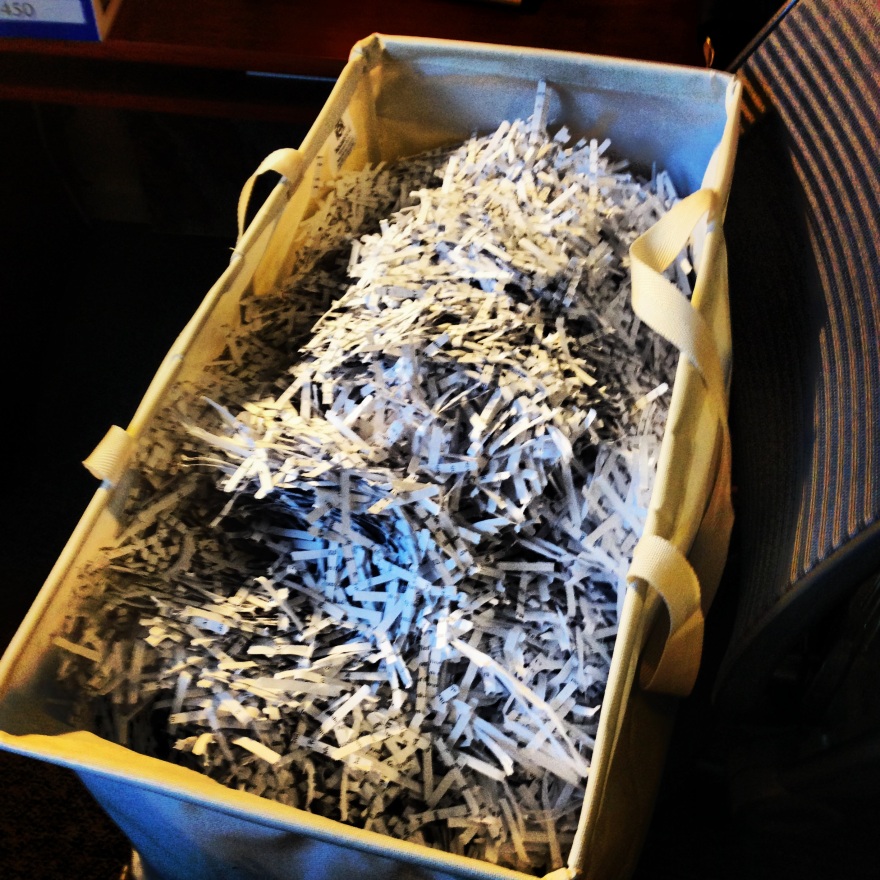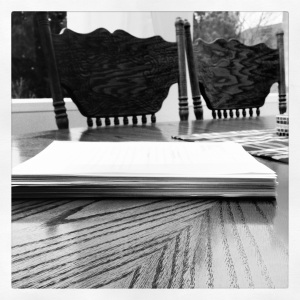The only characters I ever don't like are ones that leave no impression on me. And I don't write characters that leave no impression on me. ―Lauren DeStefano
One of the criticisms an early reader offered about my novel Refuge of Doves is that my protagonist, Lia, is too likable. As a young widow, the readers' sympathies are already with her, so this reader asked that I flaw her up, muss her up, make us not like her so much. Granted, the critiquer didn't read the manuscript past Chapter Three, so she saw little of Lia stumbling through her world, but this notion of likable characters has been on my mind.
Literary food fights broke out last year when Claire Messud blasted back at an inane question during a Publisher's Weekly interview after the publication of her novel The Woman Upstairs. Jennifer Weiner penned this tart rebuttal to Messud's reply for Slate I Like Likable Characters and lines were toed in the sand. You can Google the hell out of this and come up with endless commentary on this fascinating debate—I'll link to a few articles at the end—but, well, back to ME and MY characters, right?
Honestly, I hadn't considered Lia's likability score when I created her. I wanted her to be believable, even if the story itself requires significant suspension of disbelief. I envisioned a woman conflicted by grief, loneliness, and the physical and emotional longing she's waking up to eighteen months after her husband's death. I created a historian caught between her dedication to facts and the proof that fantasy, or what the religious may consider faith, is real. I wanted an ambivalent, angry, compassionate, curious person, but I hadn't considered whether I was asking the reader to like her.
I've seen what happens to readers' opinions of the writer when her protagonist is deemed unlikable. They flat out don't like her book and dismiss the author. This has been nibbling on the edges of my brain since encountering readers' reactions to Claire Messud's character Nora in The Woman Upstairs. I wonder how much of my ego is at play when I write. Am I subconsciously creating sympathetic characters because I, the writer, want to be liked?
I write women. I don't write for women and there are a fair number of XY-chromosome characters in my stories, but to date, my central character is a woman crashing around in large or small ways. She is written with ambiguous motives and sometimes slippery moral imperatives, but she is reacting to and processing in ways I believe most of us do: with self-preservation, compassion, and utter bewilderment. I've seen my novels' characters deepen in revisions, becoming perhaps less sympathetic, yet more relatable. But likable? Dot Dot Dot
As I work through these questions, I must own this truth about myself as a writer and a woman: I want readers to feel for and identify with the characters I create. I want them to experience the same depth of emotions, appreciate the mistakes, nod knowingly at the flaws. Perhaps some day I will create protagonists who so infuriate or frustrate, like Claire Messud's Nora, that I risk alienating readers. But frankly, it's not the readers I'm thinking of. It's me. I don't relish spending months or years with protagonists I don't like.
Maybe someday I will. And I bow in thanks and amazement to Claire Messud and every writer before her who had the goddamned incredible writing chops and confidence to create characters who get under our skin, making us squirm, gnash our teeth, and grind our jaw. Because it takes courage to stick with such characters and write them with integrity.
Really though, I will not write with a likability agenda. I didn't sit down with Pilot Fine Point and a blank Moleskine in January to start a second novel and plan how I could create what Meg Wolitzer calls "slumber party fiction – as though the characters are stand-ins for your best friends." I found a woman fresh out of rehab who screws up her marriage, her job, and is handed an opportunity to make at least one of those whole again, only to discover the opportunity is a stick of dynamite with a lit fuse. The story that follows is what she does with the messes of her own and others' creation. She's not perfect. But yeah, I probably wouldn't mind meeting her for coffee.
Excerpt from an interview with Claire Messud in Publisher's Weekly, 4/29/13
PW: I wouldn’t want to be friends with Nora, would you? Her outlook is almost unbearably grim.
CM: For heaven’s sake, what kind of question is that? Would you want to be friends with Humbert Humbert? Would you want to be friends with Mickey Sabbath? Saleem Sinai? Hamlet? Krapp? Oedipus? Oscar Wao? Antigone? Raskolnikov? Any of the characters in The Corrections? Any of the characters in Infinite Jest? Any of the characters in anything Pynchon has ever written? Or Martin Amis? Or Orhan Pamuk? Or Alice Munro, for that matter? If you’re reading to find friends, you’re in deep trouble. We read to find life, in all its possibilities. The relevant question isn’t “is this a potential friend for me?” but “is this character alive?” Nora’s outlook isn’t “unbearably grim” at all. Nora is telling her story in the immediate wake of an enormous betrayal by a friend she has loved dearly. She is deeply upset and angry. But most of the novel is describing a time in which she felt hope, beauty, elation, joy, wonder, anticipation—these are things these friends gave to her, and this is why they mattered so much. Her rage corresponds to the immensity of what she has lost. It doesn’t matter, in a way, whether all those emotions were the result of real interactions or of fantasy, she experienced them fully. And in losing them, has lost happiness.
Great Male Protagonists We Wouldn't Want to Be Friends With
Meg Wolitzer: Men Won't Read Books About Women










